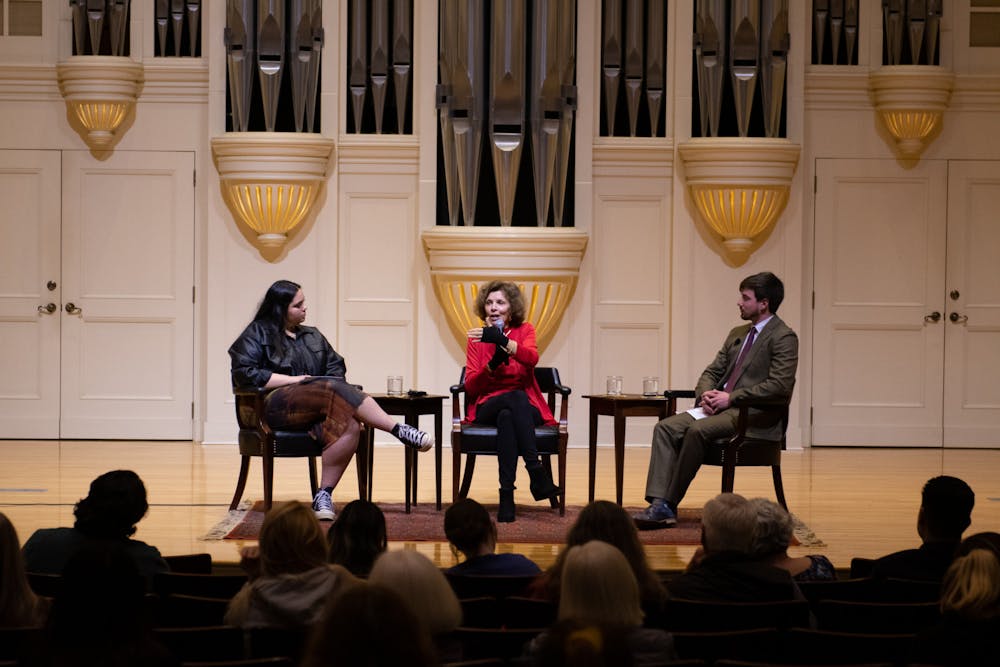Nadine Strossen, former president of the American Civil Liberties Union, spoke at Elon University’s Whitley Auditorium Thursday evening about the prominence of free speech and how it affects her personal life.
Strossen was accompanied on stage by two Elon students, sophomore Isabella Hosein and senior Cole Picca, who helped ask questions to Strossen.
Strossen said to her, free speech is no more than just common sense; No matter how much free speech is taught, it is under one’s intuition.
Strossen added that most of the Supreme Court verdicts are unanimous. This unanimity shows that the First Amendment protects the most controversial of speech, though most Americans should be censored based on the morality of their addressment.
Strossen said she finds the government lacks much of what the Constitution had promised to uphold.
“The Constitution is not self-executing. Government officials throughout our history have gotten away with it,” Strossen said. “That's why organizations such as the ACLU and other organizations were founded to provide lawyers and other resources to help people actually know their rights.”
Elon senior and member of the Liberal Arts Forum, Caroline DiGrande, said freedom of speech is an important right and appreciated Strossen’s storytelling.
“Freedom of speech is a really important message, especially to college students. And she really went into depth about the different aspects of freedom of speech and the benefits, sometimes consequences, and the good and bad of that,” DiGrande said. “I think it was a really enriching conversation to have and I really appreciated that students got to ask a lot of questions to hear her perspectives on that.”
Hateful speech can cause some of the most dangerous forms of punishment, Strossen said, which satisfies the emergency principle that can be subject to punishment.
“These are more serious crimes. And how do you prove this intentional discrimination? usually proven by the hateful expression in which the perpetrator engages,” Strossen said. “So that's another way in which showing the comprehensive personal principles, that hateful speech is the most dangerous.”
Strossen was asked to give advice to the younger generation dispersed throughout the crowd. Her response was that instead of giving the younger generation advice, Strossen asked about the pressure that has come from their own peers. She mentions “cancel culture” and the running effects it currently has on this generation.
“Where speech is being suppressed, it is exactly as you recognize, it is often called ‘cancel culture,’ mainly for positive reasons,” said Strossen. “We are thinking of saying something that is offensive, or perceived as being offensive or insensitive. And so you engaged in self censorship.”


